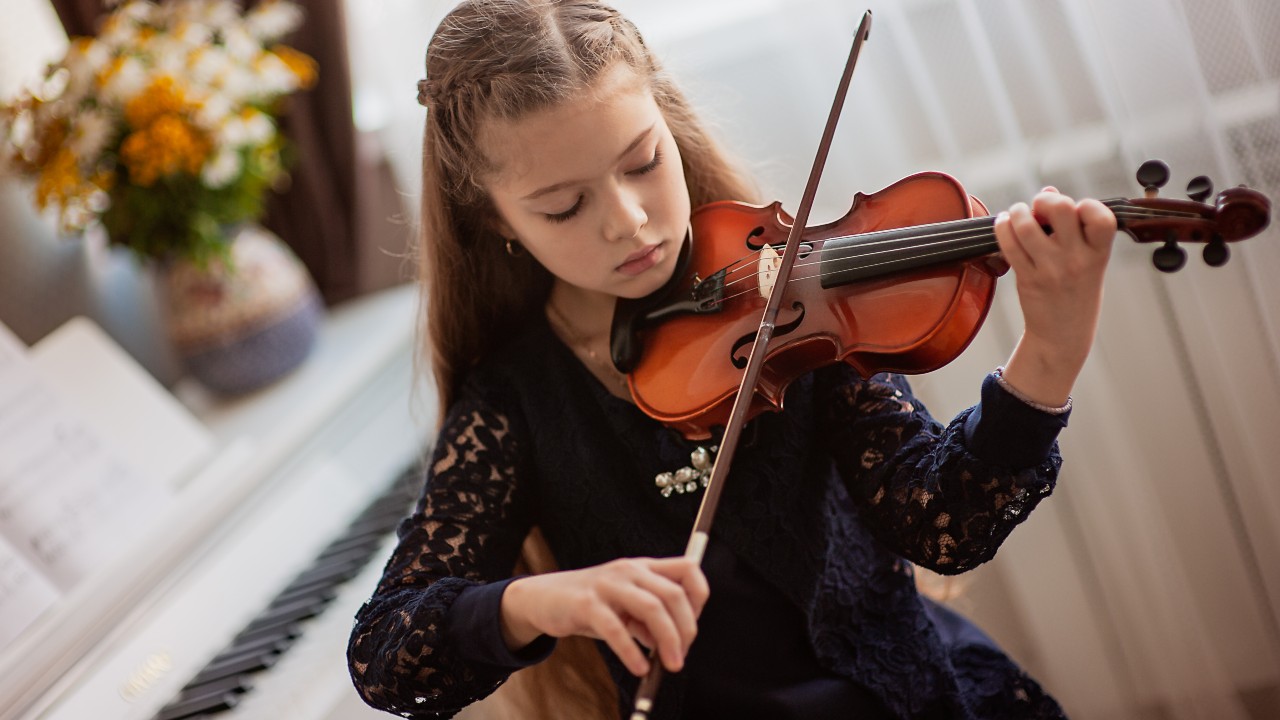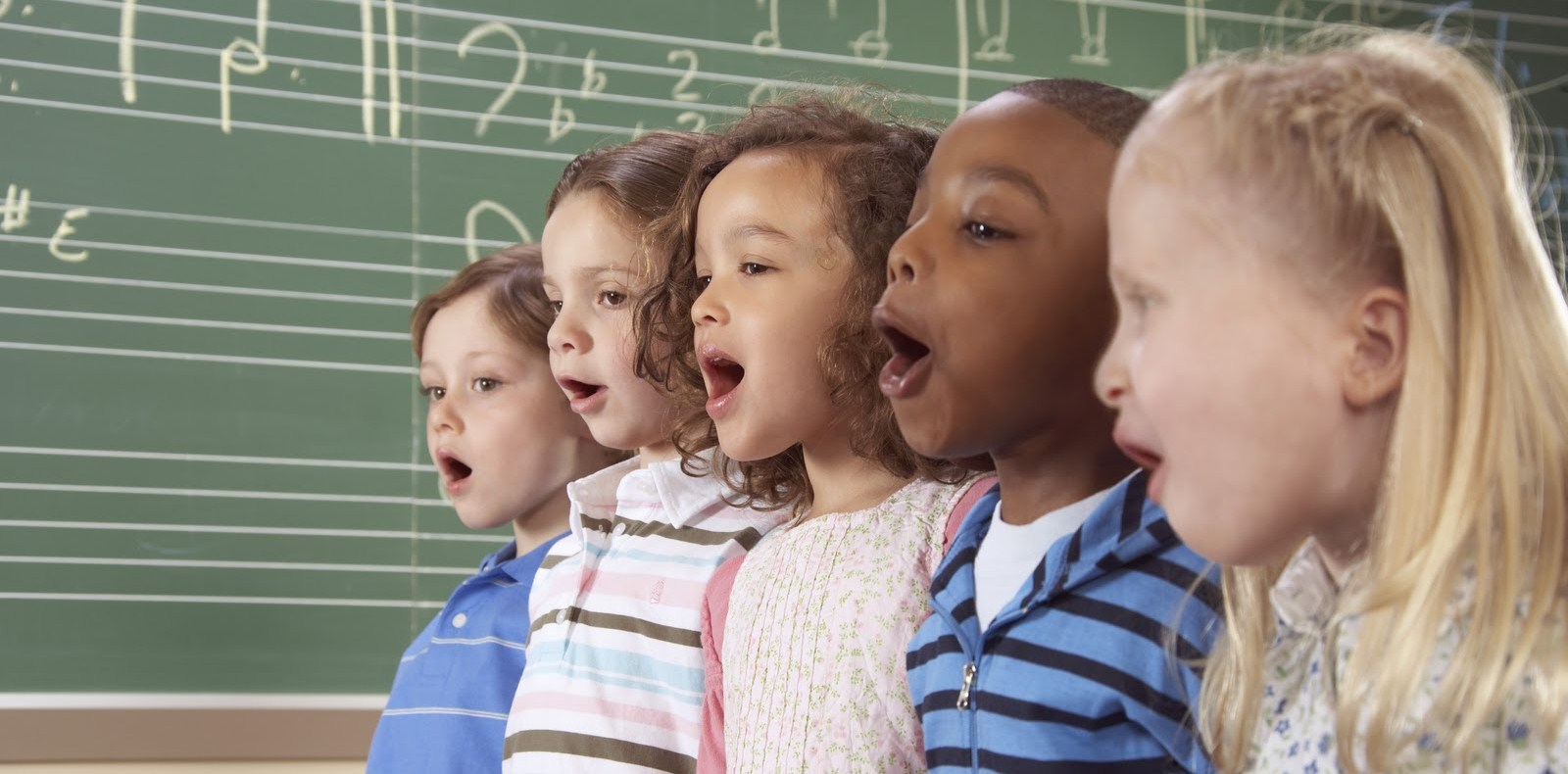Why Music Education for Kids is Essential for Development

Posted on August 17, 2024.
As parents, we all want the best for our children. We want them to grow and thrive, to reach their full potential. And that's exactly what music education can offer. It goes beyond teaching notes and rhythms; it's about fostering a love and appreciation for music that can shape a child's development in so many ways.
Music education has been proven to enhance cognitive skills, creativity, and social development in young minds. It provides a platform for children to express themselves, build discipline and teamwork, and form long-lasting friendships.
That's why in this article, we will explore the essential role of music education in a child's development. We will delve into the various benefits it offers and the ways it can shape a child's future. So, let's dive in and discover why music education for kids is truly essential.
The Benefits of Music Education for Children
One of the primary music education benefits for children is its incredible impact on cognitive development. Research has shown that engaging in music lessons can significantly enhance areas such as memory, attention, and problem-solving skills. For instance, learning to read music and play an instrument involves understanding complex symbols and translating them into physical actions, which bolsters a child's ability to process and recall information swiftly.
As children progress through various cognitive development stages, their musical education helps to solidify foundational brain functions that are crucial for their academic success. Additionally, the rhythmic aspect of music requires timing and coordination, linking to an improvement in mathematical abilities. Counting beats and measures trains children to recognize patterns and sequences, a skill directly transferrable to arithmetic. Parents often notice that children who are actively involved in music education tend to perform better in subjects like math and science, as their brains are wired to handle complex concepts with greater ease.
Emotionally, music education offers an unparalleled outlet for children to express themselves in ways that words sometimes cannot. Playing an instrument or singing can provide a much-needed emotional release and serve as a healthy coping mechanism. It's not just about creating beautiful sounds; it's about the interconnectedness of playing and feeling. For children who may struggle with verbalizing their emotions, music offers a medium through which they can communicate their inner thoughts and feelings, promoting better emotional regulation.
Let's not forget the social benefits of music education. Participating in group lessons or ensembles at a local music academy encourages teamwork and collaboration. Kids learn the value of listening to one another, sharing ideas, and working together towards a common goal – the perfect harmony. These are crucial social skills that can extend well beyond the music room. In these settings, students frequently take on different roles, sometimes even stepping into leadership positions, which helps them to develop their social confidence and public speaking abilities. Engaging in music education also exposes children to diverse cultural and historical contexts, broadening their understanding of the world around them. When children perform in recitals or concerts, it teaches them to handle public situations gracefully and boosts their confidence to face larger audiences.
Early Childhood Music Education: The Foundation of Growth

In the early years, children are soaking up information like sponges, and this is when sensory experiences are paramount. When children are exposed to music during their formative years, they engage their sense of hearing in a way that stimulates both hemispheres of the brain. Picture a toddler feeling the vibration of a drum or responding to the harmonic sounds of a piano; these are more than just fun activities. They are building blocks of learning. As their auditory senses are engaged, their neural pathways are being strengthened, which is vitally important for language development and other cognitive functions.
Moving into the preschool years, the benefits of early childhood music education become even more significant. At this stage, children are developing their fine motor skills, and playing simple instruments like tambourines or maracas can refine these skills. More complex instruments, like the piano or violin, require even more dexterity, thus promoting improved handwriting and coordination.
Additionally, the early introduction of musical concepts such as pitch, rhythm, and melody can bolster language acquisition skills. The way children learn to differentiate between different sounds and pitches is akin to how they will learn to recognize different phonemes in language, pointing to why cognitive development is important for children. Engaging with music at this stage promotes greater linguistic abilities and has even been shown to foster bilingual capacities.
As children progress through their elementary school years, the role of music education in cognitive development becomes even more apparent. These are the years where school performance and social interactions can set the stage for future success. Children who have engaged in early childhood music education are often more adept at problem-solving and exhibit better memory retention. This makes learning new subjects easier, as they are already familiar with the concept of practicing to achieve mastery.
Moreover, participation in music fosters emotional resilience. Whether it is handling the stress of a difficult repertoire or the nerves before a performance, children learn coping strategies that serve them well beyond the music class. They understand that mistakes are part of the learning process and that perseverance is key. These lessons can carry forward into their study habits and interpersonal relationships, making them more well-rounded individuals.
Engaging Learning through Fun After School Classes

Engaging children through interactive learning for kids during after school classes is a fantastic way to keep their minds active and curiosity piqued. Imagine your child eagerly looking forward to their music class because it's a space where they can explore different instruments, create collaborative rhythms with their peers, and even experiment with composing their own little pieces. This kind of diverse, hands-on interaction is fundamental to fostering a love for music that can last a lifetime. And when the environment is one that prioritizes student engagement in music, you can rest easy knowing your child is truly being enriched. The beauty of such classes is their capacity to cater to various learning styles; whether your child is a visual learner who thrives on sheet music and video demonstrations, or a kinesthetic learner who needs the physicality of tapping out a beat, our programs can adapt to meet their needs.
Speaking of student engagement in music, the communal aspect of learning in a group can significantly amplify a child's excitement and commitment. Picture a setting where kids are not only learning from a teacher but also from each other. They see how their peers approach the same musical challenges, which can inspire new methods and techniques they might not have considered on their own. Playing in an ensemble, for instance, requires children to listen attentively and synchronize with each other, cultivating a sense of camaraderie and mutual respect. These collaborative efforts often result in lifelong friendships and valuable team-working skills.
Additionally, having peers who share the same musical interests can be highly motivating. When children can share their successes and even their struggles in a supportive group, it transforms the learning process into a shared journey. Plus, periodic recitals or performances give them tangible goals to work towards, further boosting their engagement and enthusiasm.
So, when is the right time to start music lessons for kids? Honestly, it's never too early or too late to introduce your child to the joys of music. For very young children, exposing them to music through playful, sensory activities can lay a solid foundation for more structured learning later on. Preschoolers can benefit immensely from music as they are at an age where their motor skills and cognitive abilities are rapidly developing. Early exposure can tune up their fine motor skills, enhance their auditory discrimination, and provide a creative outlet for all that boundless energy. On the other hand, school-aged children who start lessons can immediately begin to see the connection between their burgeoning academic skills and musical activities, making the learning process both relevant and exciting.
Related - Piano vs. Guitar - Which is the perfect instrument for kids?
Wrapping Up
The experience of learning music is immeasurably enriching, weaving together cognitive, emotional, and social dimensions of development in a way that few other activities can match. By diving into music, your child not only gains the ability to play an instrument but also hones critical thinking skills, emotional intelligence, and the ability to collaborate effectively with peers.
The joy of learning music reaches beyond individual growth, creating shared experiences that can strengthen family bonds and build community. As parents, your support and encouragement play a pivotal role in your child's musical journey. Attending recitals, cheering them on, and even participating in musical activities at home can amplify the positive effects of their music education. When you see your child's face light up after successfully performing a piece they've worked hard on, it's a reminder of the profound impact these experiences can have. That's where our academy steps in, offering structured, yet joyful experiences tailored to keep your child engaged and inspired.
Maximize your child’s after-school time with enriching music classes at Daytona Beach Music Academy. Our dedicated team provides a nurturing environment through both private & small group lessons, ensuring personalized attention to meet each child's unique needs. We invite you to explore our wide range of programs designed to inspire and develop young musicians.
Reach out at [email protected] or call us at (386) 855-8487. Let's make music a joyful part of your child’s life together!
Have Questions?
An email will be sent to Daytona Beach Music Academy, we aim to reply within 48 hours.